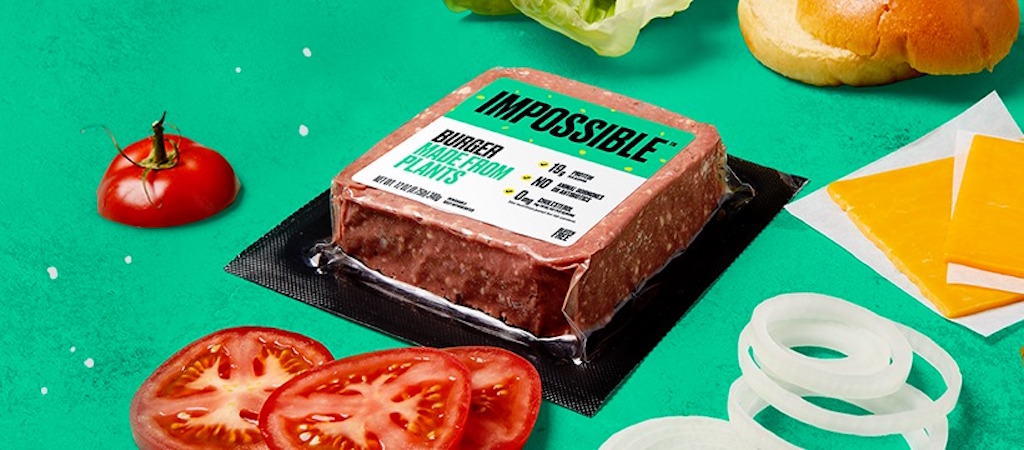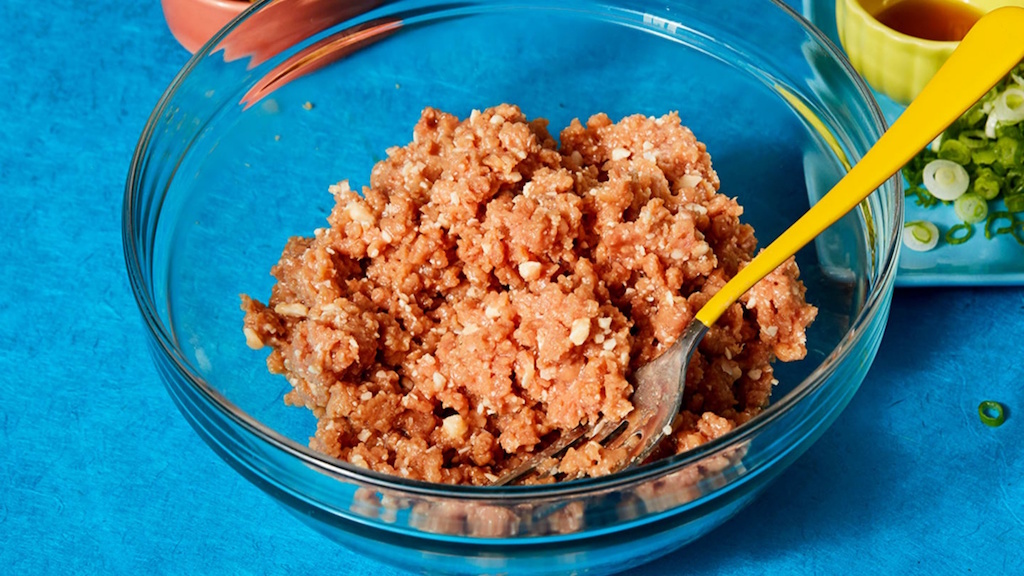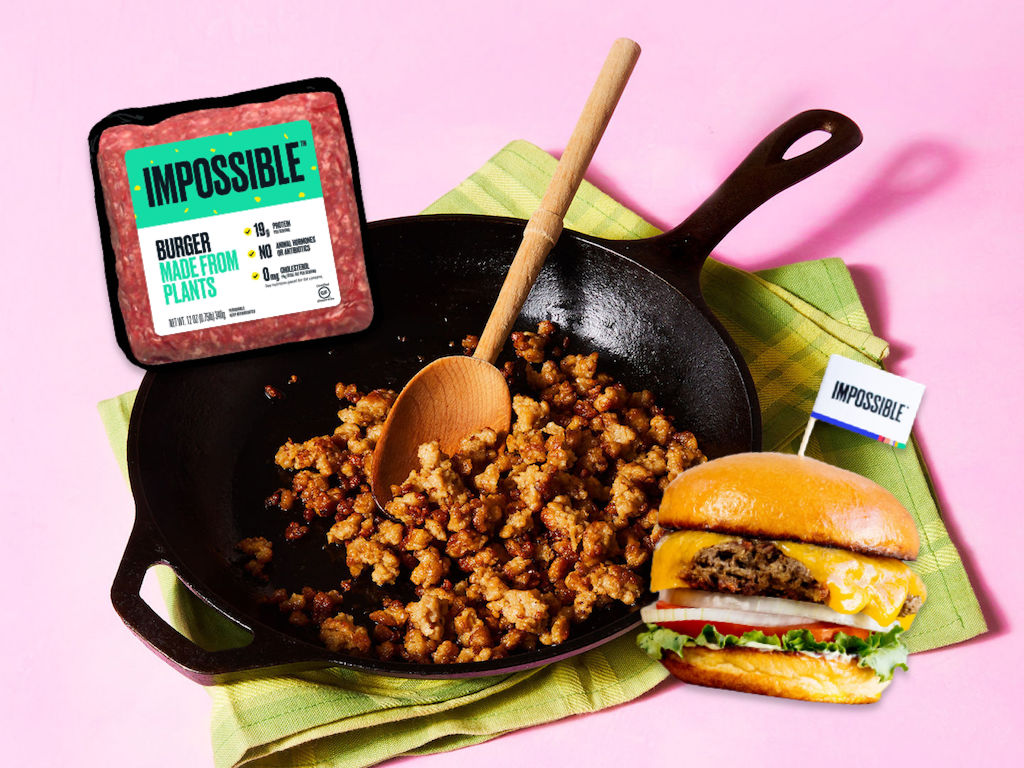BREAKING: Impossible Foods Raises US$ 500 Million Series F, Looks To Reach Price Parity With Ground Beef
4 Mins Read
Impossible Foods, famous for its “bleeding” heme iron-filled vegan burger patties, is seeking to make its plant-based offerings cheaper than conventional animal products. Amidst breaking the news that the Silicon Valley-based startup has raised a whopping USD 500 million Series F round late last week, the company also revealed that it will be introducing more vegan-friendly and sustainable meat substitutes to its product line in the near future, and has ambitious plans to “undercut the price of conventional ground beef”.
Impossible Foods has recently announced its plans to slash prices to foodservice distributors by an average of 15% in order to make their products “ubiquitous, super mainstream, and super mass market.” Currently, Impossible Foods’ beef patties are priced about the same as organically farmed grass-fed beef, but have yet to reach price parity with conventional beef cuts.
The price cut will be applied to the brand’s entire product line sold to distributors – including its burgers, sausages, ground pork – but it will not be reflected in retail prices, which is now available in selected locations of Gelson’s, Wegmans and Fairway Markets in the United States. However, the company noted that as their retail arm expands this year to cover nationwide in the United States, they hope that distributors will pass along their planned price cuts to the restaurants.
“Our stated goal since the founding of the company has always been to drive down prices through economies of scale, reach price parity and then undercut the price of conventional ground beef from cows. Today’s price cut is the latest step forward toward our goal of eliminating animals from the food system,” said Impossible Foods founder and CEO Pat Brown.
Impossible’s latest investment round, bringing their total funding to date to US$ 1.3 billion, will no doubt help the company achieve price parity with ground beef in the near term future.

Read: Impossible Foods eyes Asia market & launches 2 new plant-based pork products
Speaking to Food Navigator, Impossible Foods chief communications officer Rachel Konrad agreed that a necessary part of achieving the goal of transitioning to a plant-based meat system is to “compete on price.”
Impossible Foods’ products, like many other plant-based meat alternatives, leave behind a much smaller impact on the planet. Compared to animal-based meats, vegan analogues are manufactured with no antibiotics and no hormones, and require much less water and land to produce. It also releases far fewer greenhouse gas emissions, especially when compared to beef and lamb, as rearing animals contributes toxic methane into the atmosphere.
In addition to price cuts, Impossible Foods will be expanding their existing beef product line with a new quarter-pound patties and third-pound patties, which will be available to order by customers at restaurants in the United States. In the future, the company wants to “produce a full range of meats and dairy products for every cultural region in the world,” Konrad explained.
Although Impossible Foods stopped short of naming any specific products in the pipeline, or when they will begin approaching the daily category, Konrad did reveal that “Pat Brown is also really concerned about how we’re strip mining the oceans, which is utterly sustainable, so we’ve done a lot of prototyping around fish.”

Read: Impossible Foods lands in mainland China
In addition to depleting marine species, leaving behind a trail of plastic pollution and damaging ocean ecosystems, the fishing industry is also mired in child labour and modern slavery scandals.
Impossible Foods’ move to make plant-based mainstream and affordable will be bolstered by the number of FCMG giants joining in to launch their own range of vegan and vegetarian products. Kellogg Co., for instance, debuted their own vegan quarter-pound “cheezeburger” patty under the Morningstar brand. Nestlé, the world’s largest food company, recently committed to ramping up plant-based innovation across every product category.
With mainstream vendors and plant-based startups working to bring more affordable and accessible plant-based products on the market, there is hope that much-needed change will take place among mass audience, especially given that consumers remain swayed by price rather than moral persuasion. It will also help assist the number of people who do wish to prioritise sustainable living choices, but have so far been deterred by costs.
Want more news on Impossible Foods? Read our earlier coverage here & check out more plant-based stories here.
Lead image courtesy of Impossible Foods, compiled by Green Queen Media.



